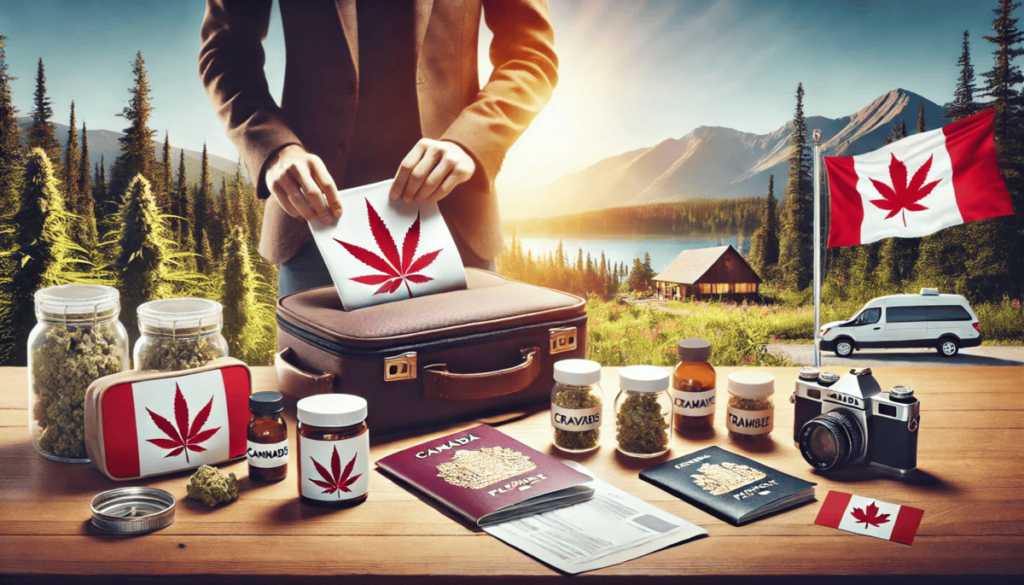Cannabis
Is Cannabis Legal in Canada? Shop Safely With DispensaryNearMeNow.co
Yes, cannabis is legal in Canada for recreational and medical use. Since October 17, 2018, cannabis is legal in the United States. The Act allows adults to buy, possess, and use cannabis under specific regulations. This article breaks down these laws, including age limits, where to buy, and how to stay compliant with the question: is cannabis legal in Canada?
Key Takeaways
- The Cannabis Act established a legal framework for recreational and medical cannabis use in Canada, aiming to regulate access, safeguard public health, and reduce illegal market activity.
- Possession limits for adults are set at 30 grams of dried cannabis or 150 grams of fresh cannabis, with age restrictions varying by province, and medical users benefiting from different regulations.
- Purchasing cannabis must be done through licensed retailers to ensure safety and legality, while strict penalties exist for unlicensed purchases and driving under influence remains heavily regulated.
Legal Status of Cannabis in Canada
The enactment of the Cannabis Act on October 17, 2018, represented a transformative change in Canada’s policy towards cannabis. It effectively took the place of the previous Access to Cannabis for Medical Purposes Regulations (ACMPR), instituting a comprehensive legal structure governing both medical and recreational use of cannabis. The act is designed to offer regulated access while preserving public health and mitigating potential harm to individuals as well as communities.
As an early adopter among leading industrialized nations, Canada has set an example for others contemplating adopting similar measures by providing an extensive legal framework for marijuana use. An assessment conducted every three years evaluates how effective these regulations are at protecting public health and maintaining safety standards.
This regulatory system places recreational marijuana under controls similar to those applied to alcohol, managing its ownership, consumption, and sale along with details pertaining to safe cannabis consumption practices. Transitioning from illegality toward a framework offering legal and regulated access aims at curtailing illegal trade while ensuring that adults have options for acquiring dependable products with quality assurance—encompassing both recreational weed uses as well as applications intended for medical purposes within Canadian law’s inclusive stance on controlling cannabinoids.
Possession Limits and Age Requirements
In Canada, individuals of legal age are permitted to carry specified quantities of cannabis based on the type and their age. Those who are 18 years or older have the authority to hold up to 30 grams of dried cannabis in public spaces, with an alternative allowance of 150 grams for fresh cannabis—both measures intended for personal use without risking violation of laws.
Provincial regulations stipulate varying minimum ages for legal consumption and possession of cannabis, which are typically either 18 or 19. Specifically within British Columbia, residents must be at least 19 years old before legally engaging with cannabis products. These restrictions aim at safeguarding younger populations from potential adverse effects connected to consuming this substance while allowing exceptions where underage persons under the age bracket may lawfully possess as much as five grams specifically in its dried form.
Individuals holding medical approvals experience a different set of regulatory limits compared to recreational users. Such patients can transport up to either one month’s supply worth—or alternatively no more than a fixed amount capped at—to supplement those authorized by regulation entirely reserved strictly for therapeutic applications aside from carrying what is already permissible amount designated exclusively towards non-medical (recreational) purposes—all reflecting adherence commitment toward providing adequate access treatment-wise while simultaneously upholding pertinent safety norms across society.
Purchasing Cannabis Legally

Acquiring recreational cannabis in Canada can be done with ease by adhering to the regulations established by the Cannabis Act. Consumers are permitted to buy cannabis products from retailers that have been approved by the government, which includes options for both physical storefronts and online platforms. Retailers authorized to sell cannabis must exhibit an official seal indicating their licensing status, providing assurance of product safety and regulation adherence.
The convenience of purchasing cannabis through online dispensaries is evident as they typically offer a more extensive selection than what might be found in traditional brick-and-mortar cannabis stores. Online stores hold the exclusive right to legally distribute recreational cannabis via online sales within Ontario province boundaries.
For quality and safety assurances regarding your purchase of cannabis products, it’s advisable to use well-trusted dispensary outlets such as DispensaryNearMeNow when shopping on digital platforms. Engaging with these reputable vendors allows customers peace of mind about compliance standards and product integrity during their acquisition of legal substances like marijuana.
Why Buy From a Trusted Source?
Purchasing cannabis from a credible outlet such as DispensaryNearMeNow.co provides multiple advantages. Adherence to legal standards is critical, ensuring that customers avoid accidentally engaging in unlawful purchases by avoiding unlicensed sellers. Credible sources also assure the purity and safety of cannabis products, offering consumers assurance.
Besides abiding by legal requirements and ensuring product safety, reputable sources present an extensive assortment of options including edibles, dried cannabis, and topicals. Opting for a well-regarded online store like DispensaryNearMeNow.Co allows customers access to an expansive range of premium-quality cannabis items while maintaining informed security in their purchasing decisions.
Provincial and Territorial Regulations
In Canada, regulations concerning cannabis plants are subject to provincial or territorial restrictions that align with the distinct concerns and preferences of each locality. In the Yukon territory, individuals can cultivate up to four homegrown plants while ensuring that any transported cannabis is securely enclosed in a container. Alberta mirrors this allowance for growing up to four plants at home and authorizes both public storefronts and private retailers as legitimate points of sale for cannabis.
On another note, Quebec has taken a more prohibitive stance by completely outlawing domestic cultivation of cannabis and establishing 21 as the legal age threshold for its consumption. Meanwhile, Saskatchewan permits household growth capped at four plants, yet strictly prohibits using it publicly or within vehicles. These variations underscore how different jurisdictions operate under a strict legal framework set forth on the federal level.
Turning attention towards British Columbia reveals their unique position where they have designated an upper limit of possessing 1,000 grams of homegrown product alongside allowing public use predominantly in places approved for tobacco smoking. Contrarily, Manitoba stipulates against personal cultivation unless sanctioned medically while prohibiting all forms of public usage altogether—emphasizing why being well-versed in these provincial or territorial differences remains essential for anyone aiming to partake in lawful and conscientious conduct pertaining to marijuana across Canada.
Medical Cannabis Regulations
In Canada, the rules for medical cannabis are separate from those applied to recreational cannabis. Individuals with a prescription can obtain medical cannabis through federally approved vendors or cultivate a small quantity for their own medicinal use. This system of regulated access is in place to guarantee that patients have products that are not only tailored to their health needs but also meet quality standards.
To procure medical cannabis, one must secure authorization from a healthcare professional and always possess proof of such permission as mandated by Health Canada’s regulations. Health Canada plays an essential role in supervising these protocols and ensuring they are followed. Patients who are registered have the privilege of keeping an unrestricted amount of medical cannabis at home to support continuous treatment plans.
These provisions underscore recognizing the therapeutic application of medical cannabis separately from its recreational counterpart. The Canadian framework ensures individuals needing specialized treatments receive them while upholding public safety and well-being by drawing definitive lines between personal usage and broader recreational consumption contexts involving cannabis.
Traveling with Cannabis in Canada

Transporting cannabis within Canada is allowed, provided that certain guidelines are adhered to. A person is permitted to transport up to 30 grams of cannabis when traveling across different areas in Canada. The restriction remains the same for both carry-on and checked baggage, providing clear guidance for individuals on the move.
Compliance with these possession thresholds is essential in order to prevent legal complications during transit. Surpassing this permissible quantity could result in monetary fines or additional sanctions, highlighting the critical nature of abiding by the stipulations outlined in the Cannabis Act.
Crossing Borders with Cannabis
It is imperative to note that the international transportation of cannabis is forbidden, irrespective of its legal status in the origin and destination countries. This ban encompasses all varieties of cannabis such as edibles, dried cannabis, and oil derived from it. Should you attempt to transport cannabis across borders, you may face significant legal penalties including criminal prosecution and potential obstacles when attempting to re-enter Canada.
To prevent grave repercussions, individuals must declare any possession of cannabis they have to the Canada Border Services Agency upon arrival or departure. It’s crucial for international travelers to be fully aware of these rules and strictly follow them so as to maintain adherence with legal regulations.
Driving Under the Influence of Cannabis
Operating a vehicle while under the influence of cannabis is considered a grave infraction carrying severe consequences. The impairment caused by cannabis consumption can diminish essential driving abilities, such as maintaining balance and timely reactions, leading to an elevated likelihood of vehicular incidents.
For individuals who repeat this offence within ten years, punishment becomes more severe with potential incarceration up to 30 days and revocation of driving privileges for three years upon the second violation. New drivers holding graduated licenses must adhere to stringent rules that do not permit any level of cannabis use when behind the wheel—a reflection of heightened restrictions placed on novice motorists. A failed Standardized Field Sobriety failed. The test may trigger an immediate 24-hour prohibition from driving awaiting Examination.
In Nova Scotia specifically, using cannabis inside a motor vehicle could attract monetary penalties which highlights how seriously such offenses are taken there. These rigorous measures serve both as deterrents against operating vehicles while influenced by cannabis and efforts aimed at safeguarding public welfare while curtailing dangers tied with cannabinoid-related intoxication during driving scenarios.
Overcoming Inadmissibility Due to Cannabis Convictions
Those with previous convictions related to cannabis may encounter difficulties when trying to enter Canada, but there are strategies available for managing these obstacles. One can acquire a Temporary Resident Permit (TRP) given that they have adequate reasons, which grants entry into the country despite criminal inadmissibility stemming from past cannabis offenses.
In terms of seeking a lasting resolution, individuals might consider applying for Criminal Rehabilitation. This application effectively lifts their inadmissible status permanently and needs no renewal once granted. Applicants must first complete any imposed sentence and wait at least five years before they are eligible to apply. It is advisable to consult legal experts who can elucidate on how one’s prior involvement with cannabis could impact their situation and point out other viable options not resulting in inadmissibility.
Tackling this issue requires navigating intricate procedures. Receiving professional legal guidance significantly enhances prospects of success for those aiming to enter Canada who carry the burden of having a record associated with cannabis-related crimes.
Public Health and Safety Measures
Canada oversees these measures through enforcement and compliance policies to mitigate public health risks linked with cannabis. Routine inspections help ensure adherence to the regulations governing cannabis, thereby preserving public health.
To address instances where regulations are not followed, Canada applies administrative actions, including penalties, which serve to encourage regulatory compliance. The agency works in conjunction with federal and provincial partners to strengthen initiatives aimed at improving public health concerning cannabis use. Consumer reports regarding any concerns tied to cannabis products contribute significantly towards upholding a high standard for public welfare.
Through educational endeavors by Canada, members of the community are informed about responsible practices related to safe consumption of legal cannabis, diminishing potential hazards associated with its use. These collective efforts guarantee that activities within the legal market for cannabis conform rigorously to a structure dedicated primarily toward enhancing public health as well as ensuring safety.
Reducing Criminal Activity
The establishment of a legal cannabis market has led to a noticeable decline in criminal charges associated with cannabis. This industry offers consumers access to products that are regulated for quality, thereby diminishing the role of organized crime and curbing unlawful practices related to the possession and distribution of cannabis.
As sales have transitioned into this controlled framework, the strength of the illicit market has diminished, enhancing overall public security. Emphasizing these advancements demonstrates how legal oversight within the cannabis sector contributes positively by lowering instances of crime and cultivating a more secure society across Canada.
Conclusion
Since the onset of cannabis legalization in Canada during October 2018, a regulated framework has been put into place with objectives to curb illegal sales and promote safety among the public. This system not only safeguards consumers, but also serves as an exemplary blueprint for nations contemplating similar reforms. This development has spurred new research opportunities pertaining to the health implications and therapeutic benefits of cannabis, enhancing our collective knowledge regarding its effects.
To foster responsible consumption patterns within Canadian society, ongoing efforts are being made to educate and raise awareness about using cannabis judiciously. As observations continue regarding how legalization influences public health metrics and crime statistics, it becomes clear that Canada’s regulatory strategy is meticulously designed with an emphasis on protecting societal health interests while simultaneously diminishing illicit activities associated with cannabis use. The role of the Cannabis Council is integral in advancing these educational endeavors.
Summary
To summarize, Canada’s adoption of legal cannabis has fundamentally altered the dynamics around access to, usage of, and control over, cannabis. The creation of the Cannabis Act along with specific rules across provinces and territories forms a robust legal framework that upholds safe and judicious consumption patterns for cannabis users. Recognizing set limits on possession, respecting age restrictions, and sourcing from reliable retailers are vital components for aptly navigating this evolving terrain.
In its ongoing efforts to perfect its regulatory stance on cannabis use within Canadian borders, Canada remains steadfast in prioritizing public health considerations as well as curbing criminal activities related to unauthorized use or distribution. Canadians who remain knowledgeable about these regulations can relish the advantages offered by legally sanctioned cannabis while simultaneously promoting societal safety and wellness benchmarks.
Frequently Asked Questions
Do they have dispensaries in Canada?
Yes, Canada has thousands of recreational cannabis dispensaries across its provinces and territories. This extensive network offers access to cannabis for a large population.
What is the legal age to consume cannabis in Canada?
The legal age to consume cannabis in Canada typically ranges from 18 to 19 years, depending on the province.
It’s important to check your local regulations to ensure compliance.
Can I grow cannabis at home?
Yes, you can grow cannabis at home, but it depends on your location as regulations vary.
Make sure to check the specific laws in your province regarding the number of plants allowed.
Is it legal to buy cannabis online in Canada?
Yes, it is legal to buy cannabis online in Canada from government-approved dispensaries, such as the DispensaryNearMeNow.co.
Ensure you comply with local regulations when making your purchase.
What are the penalties for driving under the influence of cannabis?
Operating a vehicle while impaired by cannabis carries substantial repercussions, including an initial penalty of at least $1,000 and suspension of one’s driving privileges for a year in the event of a first infraction. Repeated offenses lead to even more severe consequences.
Recognizing the significant risks associated with driving under the influence is essential for maintaining road safety.

